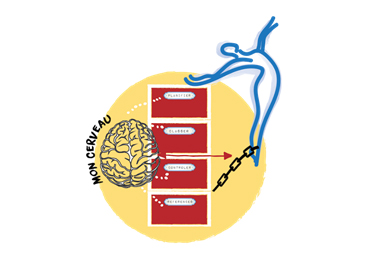For several months now, the coronavirus has been spreading in all countries and infecting new people every day. Like a spirited horse, it has set out to conquer the world and feeds on collective fears. To slow it down or stop it seems to be so complicated because its capacity to adapt and mutate is so important.
Mental load is defined as an accumulation of demands on the brain during the performance of daily tasks. This translates into « remember everything, all the time ». It generates a flow of thoughts that take up all the space and end up controlling our whole life. These are very often based on fears. We fall into a frantic race against time and overactivity. A vicious circle that is difficult to stop then sets in and affects our overall health: we feel tired and exhausted, we forget appointments if we don't write them down, emotions overwhelm us...
The current context of health crisis is for each of us a source of mental burden. The main legitimate questions we now face are the following :
- How to reconcile working at home and monitoring children's schooling ?
- How to manage cohabitation with fewer possibilities of movement or exits ?
- Comment coopérer avec mes peurs et celles des enfants ?
- How do we deal with tomorrow's uncertainty ?
- ...
Without making undue comparisons, the mechanisms of the coronavirus and mental load undoubtedly have points in common. Containment is the solution implemented in most of States to contain the virus. Celui-ci nous oblige à ralentir et à modifier nos fonctionnements personnels et professionnels.
In his latest book « Making the world unavailable », the philosopher Harmut Rosa writes : « the cultural project of our modernity seems to have come to an end. Although all the experiences and riches seem within our reach, the world is mysteriously closing in; it is becoming unreadable and mute. Having nature, people and the beauty that surrounds us deprives us of any resonance with them. ».
These words have a very special resonance today. The situation we are living through makes us question our relationship to the world and to ourselves. It invites us to reinvent it.
Let's take this unprecedented and so special time to identify our essentials and take care of who we really are.
You can share your comments, ask your questions on my profile  or by email fesens@orange.fr.
or by email fesens@orange.fr.
Anne Blanchard

